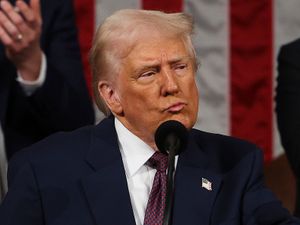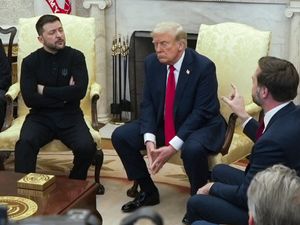How Midland MPs rocked Major government
The irony is not lost on Christopher Gill.
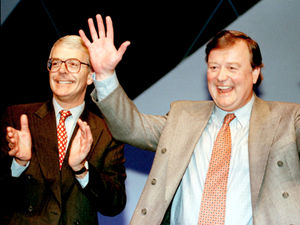
While Ken Clarke, the veteran Big Beast of the Tory Party, found himself the centre of media attention this year when his near five decades as a Conservative MP were brought to an end over his rebellion against Boris Johnson’s Brexit pledge, the former Ludlow MP recalls a time when the boot was on the other foot.
It is 25 years today since Mr Gill, Wolverhampton South West MP Nick Budgen and Aldridge-Brownhills MP Richard Shepherd had the whip withdrawn for failing to vote for the EC Finance Bill.
Ken Clarke, then the unashamedly pro-European chancellor, planned to increase Britain’s net contribution to the European Community by £75 million a year, rising to £250 million a year by 1999.
Mr Gill, who had already ruffled Tory whips’ feathers over his opposition to the Maastricht Treaty, which created the European Union, made his displeasure known to PM John Major.
He recalls: “I suggested that the way out of the party’s impasse on Europe might be a referendum, to which he replied, ‘Ken Clarke would never agree’.”
The meeting did little to improve relations, though. Four days before the vote, Mr Gill turned the heat up further when he went public with his misgivings.
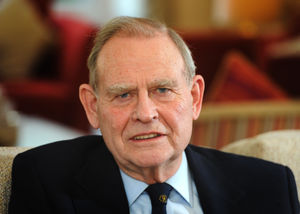
During Prime Minister’s Questions, he told the Commons he would sooner resign the party whip than back “a highly unpopular tax for the purpose of paying the subscription to a highly unpopular and increasingly expensive club”.
Mr Gill, Nick Budgen and Richard Shepherd were among seven MPs who abstained from the vote. An eighth rebel refused to support the Government on the second reading of the bill.
Mr Gill insists there was never any collusion among the rebels.
“This was not a co-ordinated rebellion,” he says. “I had deliberately not told any of my colleagues what I was planning to do simply because I was not in the business of plotting against my own party.”
Either way, the timing could not have been worse for Major and Clarke.
Not only did it come a fortnight before the Dudley West by-election, where the Tories were bracing themselves for defeat in a seat they had held for 15 years, it also came the day before Mr Clarke was due to present his Budget, which included controversial proposals to increase the rate of VAT on domestic fuel.

Mr Gill and Mr Shepherd had already voiced their opposition to the tax, and now they were free to vote against it.
Mr Gill said the tax was effectively taking money from those who could least afford it to finance the extra payments to the European Community. The lack of a government majority led to the increase being defeated in the Commons just eight days before the by-election – forcing the chancellor to make a humiliating emergency statement.
The rebellion also put Mr Gill on a collision course with Derek Conway, MP for the neighbouring Shrewsbury constituency. While Mr Conway’s eurosceptic credentials preceded those of Mr Gill – by 1994 he had been promoted to the role of party whip, and it was his role to cajole MPs into toeing the party line.
The impact the infighting was having on the party’s standing was laid bare the following month when the party lost the Dudley West by-election in the most dramatic manner: a comfortable Tory majority of 5,789 was turned into a Labour landslide of 20,694, in an election that thrust the embryonic UK Independence Party into the public eye for the first time.
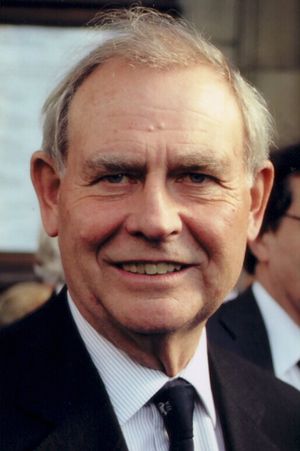
The three West Midlands rebels were eventually readmitted into the Conservative Party. Nick Budgen lost his seat in 1997, and died the following year. Mr Gill was re-elected, but resigned from the Conservative Party in 2001 and did not contest his seat. Mr Shepherd remained the MP for Aldridge-Brownhills until 2015.
Twenty five years on, Mr Gill says he feels no ill-will towards those punished him for breaking party rules. But he cannot resist a wry smile at the way the new generation of pro-EU Tory rebels reacted following their defenestration.
“I knew that we had broken the rules by defying the Government Whips’ instructions and that we must face up to the consequences,” he says.
“But when 21 Conservative MPs, including senior cabinet ministers and the aforesaid Ken Clarke, didn’t just abstain but actually voted against the Government of which they were an integral part, they thought themselves hard done by.”
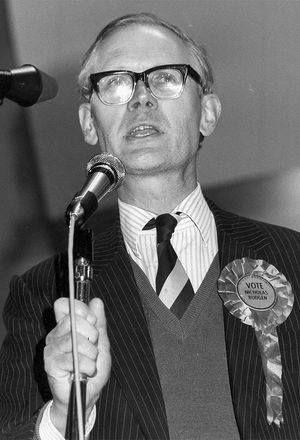
He is also scathing about former PM Sir John Major, who recently turned to the courts to try to frustrate his successor’s Brexit plan.
“He demanded absolute loyalty, which begs the question as to what he thought he was up to when he recently appeared in the Supreme Court in a legal action against Boris Johnson.
“One suspects that in chucking we eight ‘rebels’ out of the parliamentary party in 1994, John Major was aided and abetted by his chancellor. But, with the boot now firmly on the other foot, both of them appear to have adopted a rather different interpretation of loyalty to the one they shared and enforced all those years ago.”


